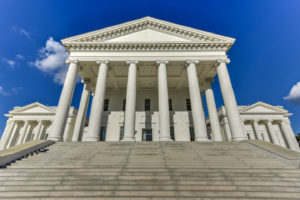Largest pornographic website admits link to sex trafficking
One of the world’s largest pornography websites admits that it profits from sex trafficking.
According to the U.S. Department of Justice, Pornhub’s parent company admitted in…

One of the world’s largest pornography websites admits that it profits from sex trafficking.
According to the U.S. Department of Justice, Pornhub’s parent company admitted in federal court that it profits from sex trafficking and agreed to pay a fine of over $1.8 million and submit to a three-year monitor as part of a deferred prosecution agreement. Formerly known as MindGeek, Aylo Holdings S.A.R.L. was arraigned on a charge of engaging in unlawful monetary transactions involving proceeds from sex trafficking.
Through Pornhub, Aylo hosted, promoted, and profited from videos produced by “Girls Do Porn,” and even gave the porn producer its own channel on its website. The owners and operators of “Girls Do Porn” were indicted in 2019 on charges of sex trafficking; several have been convicted since then.
The company would seduce or coerce women into performing sex acts on camera and then post those videos online for profit, without the knowledge or consent of the women. According to court documents, Aylo Holdings either knew or should have known that profits it was receiving from “Girls Do Porn” were obtained through sex trafficking.
Additionally, Pornhub’s parent company didn’t independently verify consent and refused to remove all the videos that were flagged as problematic. When Aylo did finally remove “Girls Do Porn” from Pornhub in 2019, the company didn’t remove unofficial content and didn’t remove channels run by the operators of “Girls Do Porn” until over a year later.
Recently, the National Center on Sexual Exploitation released a “REAL Pornhub Year in Review,” detailing the porn site’s manifold abuses in response to its own “Year in Review” boasting of millions of visits. In comments to The Washington Stand, NCOSE’s vice president of strategy and communications, Haley McNamara, said: “We’ve been learning from survivors and other reports how Pornhub and really most major pornography companies do not verify for age of consent when uploading videos to their websites.”
McNamara added: “We’re seeing videos of people who were drugged, of women who don’t know that those videos are being taken of them. Pornhub has been found to be hosting many of these videos, and the way that their business model is set up, they profit from these videos on their site.”
The report from the National Center on Sexual Exploitation emphasized that Pornhub is involved in 10 lawsuits across the globe, representing 256 victims of sex trafficking. Furthermore, a series of undercover investigations have revealed how Pornhub skirts age and consent verification protocols.
One Pornhub executive explained that a “loophole” allows verified users to upload videos of other people without showing their faces, preventing age or identity verification. A Pornhub scriptwriter said that pornographic ads do best when they feature “guys that look like 15,” because they attract “pedophilic men who like seeing young boys.” And a former Pornhub supervisor explained that the porn giant doesn’t require advertisers to verify the identity, age, or consent of those featured in pornographic ads.
Pornhub also has taken issue with state laws to protect children from accessing porn. So far, Arkansas, Louisiana, Mississippi, Montana, Texas, Utah, and Virginia have mandated age verification, cutting online traffic to Pornhub by 80% in Louisiana alone.
Rather than comply with measures to protect minors, Pornhub completely shut down in Mississippi, Utah, and Virginia.
“The only thing that, in my mind, makes sense of why they take such a strong stand against it is because it will hurt their bottom line,” McNamara said.
Pornhub now faces challenges in the European Union, where new laws require porn websites to verify the age of users.
An E.U. measure called the Digital Services Act classifies Pornhub and other major porn sites as “very large online platforms” that, due to their size, are subject to tighter controls and regulations. Despite routinely bragging of its status as the most-visited website, Pornhub argued that it should not be classified as a “vary large online platform,” claiming that it had less than 40 million monthly visits.
“This is going to become the norm,” McNamara said. “I believe that five, seven years from now, pornography companies are going to be required to keep kids off their websites, but Pornhub’s fighting it.”
The E.U.’s Digital Services Act is intended to crack down on illegal content. Violations will result in a fine of up to 6% global revenues (approximately $36 million in Pornhub’s case) and potentially result in the platform being banned from the E.U.
As part of its deferred prosecution agreement with the Justice Department, Pornhub’s parent company will pay a $1,844,952 fine and “provide monetary payments to victims” of “Girls Do Porn.” A three-year monitor also will assess Aylo’s and Pornhub’s “content screening and monitoring processes” and ensure that the company complies with federal law.



